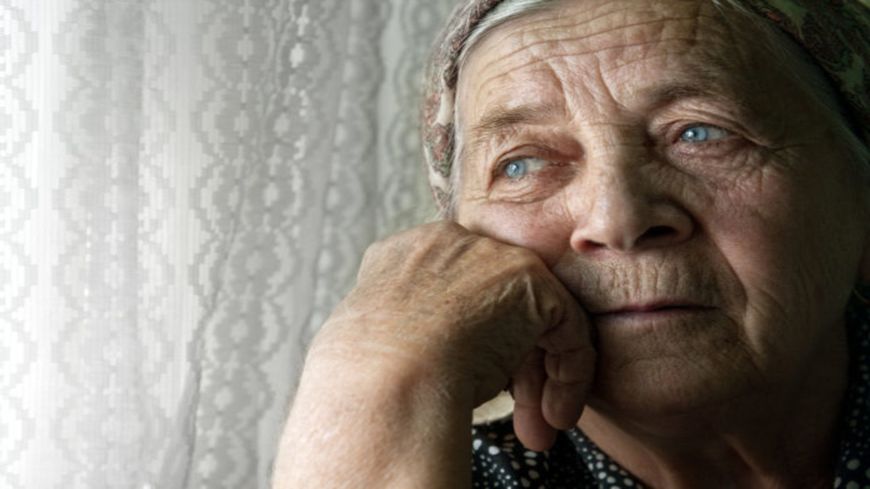Loneliness: A Danger to Your Health
We often perceive loneliness as a social issue rather than a health issue. This mindset must change, however, because loneliness is now recognized as a leading indicator of health risks. Chronic loneliness is not just a negative feeling. It is as great a risk factor for disease and death as smoking, obesity, diabetes or high blood pressure.
Despite all of this, loneliness is usually not appreciated as a serious health issue. Therefore, it often goes unrecognized by the medical community. Worse, the lonely person may perceive that others are no longer caring friends. And so avoids them or subconsciously pushes them away. This is unfortunate as these are just the individuals that could be of the most assistance.
Loneliness is much more common than generally appreciated.
Everyone has had periods of feeling alone – a child went off to college, a friend moved away, a spouse, parent or child or significant other died. There are many causes.
Most people find ways to cope, to deal with grief over time. But for many others, the loneliness that could be transitory becomes persistent. And, it is accompanied by the perception that no one understands or appreciates the depths of their distress.
The lonely person perceives that no one cares, that no one wants to help. He or she feels trapped and has little appreciation of how to overcome the perceived situation. It is this conversion from temporary situational to long-term perceived loneliness that is of concern.
Loneliness is much more common than generally appreciated, particularly in elders. This is because of temporary stresses in life that only transiently affect younger individuals that can have a profound long-term impact among elders.
Why did loneliness evolve?
Of course, we all like and want to be alone at times. That is perfectly normal, necessary and healthy. But why do we feel lonely? It is actually an evolutionary characteristic that developed for self-protection.
Our early ancestors needed a group for protection. Absent the group, the individual was at grave risk. The feeling of “social pain” evolved to alert the person to attend to group interactions. Consider that even today, banishment from a tight-knit community or religious group inflicts striking emotional pain.
Loneliness is a danger to your health
Not only does being lonely inflict emotional discomfort, but it also inhibits many key physiologic parameters leading to multiple disease states, such as coronary heart disease and stroke. It is also associated with early death. This is because perceived loneliness negatively impacts many cellular activities so that the following occur:
- • inflammation is heightened (in women)
- • immune function is suppressed
- • the aging process is accelerated
In short, perceived loneliness is very bad not only for our social but also our physical health.
Social engagement is critical
An interesting observation is that lonely people often believe that they are tending to their social relationships when just the opposite is closer to the truth. Their family and friends network may sense a rejection just as does the lonely person. This dynamic creates a downward spiral with greater and greater separation from just the people who could and would most like to assist.
Social engagement is critically important. Healthy connections with others literally slow the aging process. But loneliness and its implications do just the opposite. Feelings of connectedness reduce our anxieties and stresses. But these feelings are amplified in the chronically lonely.
Having friends, places to interact, dinner out options, activities, and so forth are necessary to help the lonely person. But they are not sufficient because the lonely person’s issue is a perception of reality, not reality itself.
So, what can be done to combat loneliness?
First, it is important to recognize that most individuals with perceptual loneliness will not reach out for help. After all, their perception is that no one wants to help or at least no one appreciates their situation. So, it is incumbent upon all of us, as a community, to reach out to them.
Perhaps just a few words to a neighbor in the hall, the park, the grocery store or wherever, remembering a great-uncle’s birthday, positive comments about clothing to a parent, an invite to dinner or tea for a past mentor. Small gestures at first can be vastly helpful, and open the door to larger, more lasting, and more impactful interactions. While a good first step, these simple interactions will not resolve perceived loneliness.
Cognitive-behavioral therapy
Many people need cognitive behavioral therapy, a process that helps convert internally-held negative assumptions to the often-positive external reality. The good news is that there are many professional resources to help.
While primary care physicians and nurse practitioners, unfortunately, may not be fully aware of the implications of loneliness, let alone know how to diagnose and measure it (the UCLA Loneliness score). And, they may not know how to help. But they can learn.
Mental health counselors and social workers are more likely to be trained to assist. Of course, this level of help can only be accessed if the health professional knows there is a person in need.
If you suffer from loneliness, don’t be afraid to ask for assistance.
Professionals in your community are there for you and will be delighted to engage. Unfortunately, most lonely people, even though they may know that professionals are present, will not reach out. That is part of the basic nature of perceived chronic loneliness.
It follows that for the rest of us if you are aware of someone who is lonely, you can encourage that person to avail him or herself of the local resources. Alternatively, with that person’s permission, you could call their doctor or a mental health professional or social worker and set up the first appointment. And, maybe you could even drive your friend to the appointment.
The bottom line
It’s important to remember that loneliness is not only socially immobilizing but incredibly adverse to health. It’s part of our evolution and is a problem we must tackle as a collective group. As such, it follows that, yes, we do need to be our brother’s keeper. As members of a community, it behooves us to help our neighbors as much as possible.
This Article originally appeared here.

.jpg)



